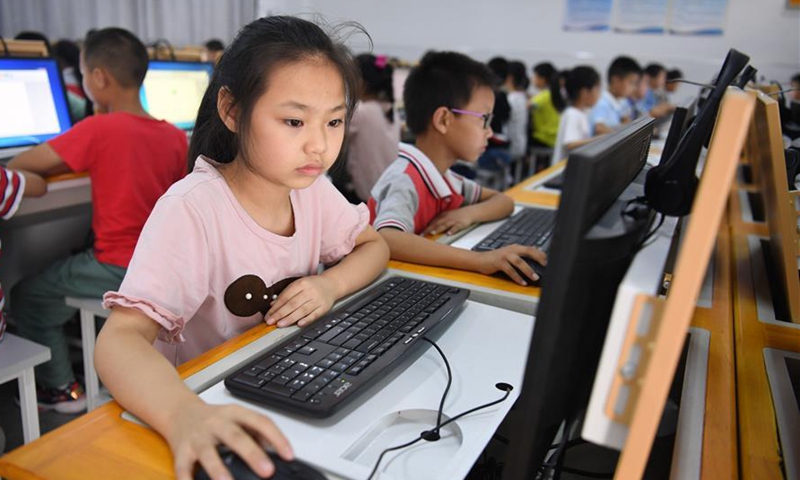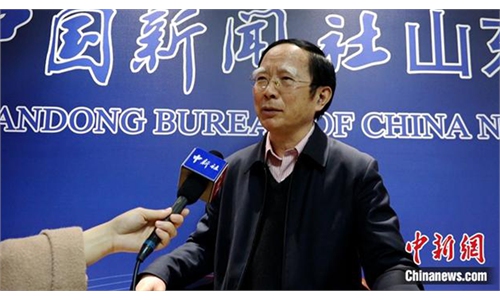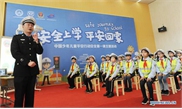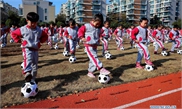NPC deputy calls to shorten the length of China's basic education, from 12 to 10 years

Students have computer class at the Jinzhai County primary school in Jinzhai, East China's Anhui Province, on September 3, 2019. Photo: Xinhua
A deputy to the National People's Congress (NPC) suggested shortening China's basic education, from 12 years to 10 years, which triggered heated discussion on China's social media platforms.
The proposal was brought by Zhang Hongwei, chairman of Shaoguan Federation of Industry and Commerce in South China's Guangdong Province and also a deputy to the 13th NPC.
Zhang suggested a basic education system of five years for primary school, three years for middle school, and two years for senior high school, while currently, there are six years for primary school, three years for middle school and three years for senior high school in China.
According to Zhang, a child normally starts primary school at the age of seven, finishes high school at 19, and graduates from college at 23. If they do graduate school, they will start to work at the age of 26 or 27. If they find it challenging coming across employment, they are likely to find a suitable job at 30. If she were a woman and retire at the current national standard of 55, she would have worked less than she had studied.
Shortening school length can effectively reduce the family burden, relieve pressures from an aging population, improve the utilization rate of educational resources, and enrich the social labor resources, Zhang suggested, as Guangzhou based media Nanfang Worker newspaper reported.
However, many Chinese netizens criticize such suggestions as regarding students just as a labor force.
"Why do I have to complete my studies and work as quickly as I can, rather than enjoy the education and being mature gradually?" A netizen commented.
Chu Chaohui, a research fellow at China's National Institute of Education Sciences, told the Global Times on Sunday that the establishment and reform of the education system are based on the process of individual growth and development. It is one-sided and unscientific to consider shortening the school length from the perspective of an employment problem and coping with an aging population.
Aging is a societal structural problem which cannot be helped and solved by shortening school length to increase the labor force population and working hours, he noted.
The demands of the employment market change according to the national economic development and scientific and technological progress. There are too many factors affecting employment and there may not be sufficient labor positions, Chu said.
Xiong Bingqi, director of the 21st Century Education Research Institute in Beijing, believed that the schooling system is a very important national educational system. It is very important to maintain its stability, but it does not mean that it cannot be adjusted and reformed according to the form of education and social development.
However, a comprehensive investigation is necessary for carrying out adjustments and reforms, which aimed to serve the better growth of the student, he told the Global Times.
Behind the backdrop of the serious tendency towards exam-oriented education in the current basic education system, the adjustment of the schooling system of primary and middle schools to 10 years and the promotion of 10 years of compulsory education cannot reduce the burden on students and families, and achieve the goal of rapidly producing talents, but will create more educational problems, he said.
Some netizens agree with the proposal to shorten six years of primary school to five years, as they believe five years is enough to complete the entire curriculum.
"National curriculum standards should not be the whole story of basic education. Children and teenagers need time to learn on their own what they are interested in, which is not always included in rote exams. Shortening the school length will lead to greater academic pressure and even affect children's mental health if exam-oriented education remains unchanged," Chu noted.



